Why are the roadworks for our new road island between Nottingham’s ring road and the main road to Hucknall taking so long? They began in August 2014 and at first everything was going so well. Through September and October the works continued “apace” as they say. As you might expect, the old roundabout had to be completely demolished as unfit for purpose, and this is what has replaced it so far:
Presumably, the roundabout will not remain for too long as a very large pile of soil, and one day somebody will surely find the money to plant something on it. Previously, the island looked like this:
It always seemed to me to have a very Japanese feel to it, with stunted willow trees that could almost have come out of the world of bonsai. And this is the clue as to why the work has taken so long. Rumours began in late November of what the roadbuilders had discovered, or rather, who the roadbuilders had found:
He was 91 years of age when he was first spotted by the construction workers. His name was Sergeant Sakura and it was probably the oriental flavour about the island which had led to his mistaking it for the Island of Takeshima and the ideal place to make the very last stand of World War II, opposing the Allies on the last island that they would need to capture to ensure that “the war situation has developed not necessarily to Japan’s advantage”:
After his initially rather conspicuous arrival in late 1945 in a Maeda assault glider flown from a mini-submarine in the Irish Sea, (a mere 94 miles as the Maeda flies), Sergeant Sakura was seen only very rarely because the road island, constantly surrounded as it is by huge volumes of high speed traffic is not the easiest of places for visitors, friend or foe, to reach:
It did not take Sergeant Sakura long to realise his mistake but, as soon as he had claimed the island for the Japanese Empire, he began digging foxholes, tunnels and bunkers of an amazing intricacy. Shortly after his eventual surrender, the City Council found that he had constructed almost 27 miles of tunnels, allowing him unobtrusive access to everything he needed to prolong his war into a new millennium:
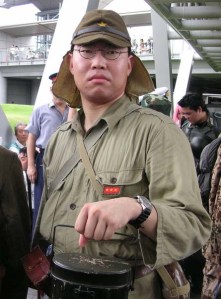
One tunnel, for example, joined the drainage system from the City Hospital. This allowed Sergeant Sakura access to simple medicines. The hospital staff who saw him just presumed he was some kind of ghost, or perhaps a lost tourist, destined to wander the hospital corridors for ever. Another set of tunnels took Sergeant Sakura to the school sports field, where, in the depths of the night, he could practice his bayonet drill, and, as dawn broke, improve his marksmanship with the seagulls still asleep on the rugby pitches. His most important tunnel linked him with the Co-op supermarket, where he could easily find enough food to feed himself, without anybody really noticing. Boil-in-the-bag rice dishes, Ready Meals with fish and chicken, and even Spicy Pot Noodles:
The City Council of course, it eventually emerged, had known for a number of years that Sergeant Sakura was there, but as long as he limited himself to the occasional rifle shot at passing buses, or a three monthly light mortar attack on the Skateboard Park, they didn’t really bother him too much. The problem, of course, was that there was no particularly easy way to get Sergeant Sakura out of his tunnel system. The Geneva Convention had, rather foolishly perhaps, now banned the flamethrower, and the Royal Navy absolutely refused to send either of the two warships remaining after the government cuts to recapture just one senior citizen. The use of gas was tried, but had comparatively little effect:
Sergeant Sakura’s superior officer, of course, was traced and contacted. He was the sole person who could have ordered Sergeant Sakura to surrender, but he was unwilling to travel back from Japan to make a loudhailer appeal down a hole in a road island. He said it would compromise his responsible position in the higher management echelons of a major Japanese car manufacturing company:
The end came eventually for Sergeant Sakura in a much more mundane way. After seventy years of crawling through countless miles of damp tunnels and homemade bunkers, many of which were regularly flooded by the murky waters of a local stream, the Daybrook, his proud military uniform finally began to rot away completely and his katana began to rust.
The only alternative Sergeant Sakura could find was to crawl into the Co-op Supermarket, and see what garments they had. Alas, it was not a particularly big shop and they did not stock anything suitable for a Sergeant in the Imperial Japanese Army. No hunting clothes, no fishing clothes. Shortly after this, therefore, Sergeant Sakura was finally forced to surrender, when he realised that it would be impossible to uphold the honour of the Japanese Empire as an old man dressed in the uniform of a checkout girl, the only clothing which he could find in the Co-op Supermarket:
Sergeant Sakura subsequently sought, and was duly given, forgiveness by his Emperor.
The Formal Surrender took place on a Number 17 bus, ironically one of the very vehicles Sergeant Sakura had himself fired on in a surprise attack just a few months previously:
The bus (serial number 984) had to be taken out of service to be repaired, but duly returned in time for Sergeant Sakura’s surrender:
Cars full of curious tourists queued for hours to see the ceremony:
The Number 17 bus was duly parked in front of the Co-op Supermarket and, at 17 minutes past 1700 hours, Sergeant Sakura became a civilian again:
The owners of the local Chinese restaurant and takeaway, the “Golden Phoenix” (“brilliantly cooked and gorgeous food. Can’t be recommended high enough. 5 star.”), are fearful that Mr Sakura may cash in on his fame and open a Japanese sushi bar. As yet, though, it seems as if their fears may be unfounded.
Unfortunately, there is still little sign either, of the roundabout being completed.


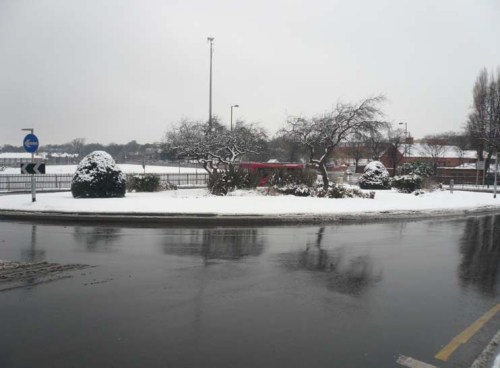
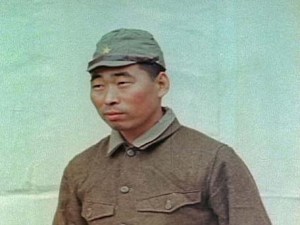

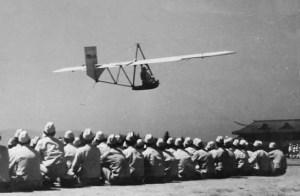
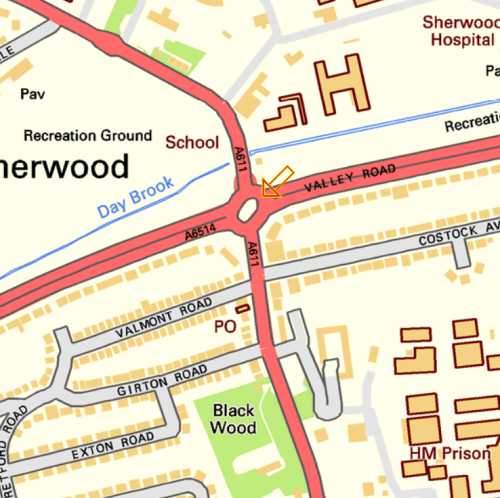





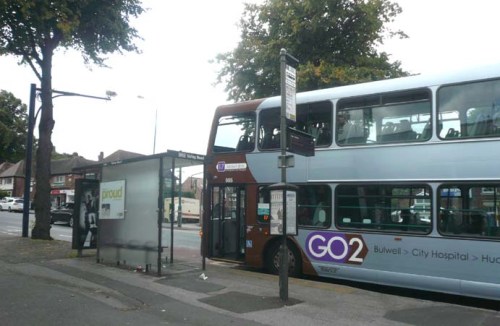



Reblogged this on Lest We Forget and commented:
This is no April’s Fools…
Honest!
Thanks very much for reblogging it. Let’s hope somebody at Nottingham City Council picks it up!
Probably not… You know how politicians are. Did any of them have photo ops of Sergeant Sakura’s surrender?
Unfortunately not. I don’t know any Japanese men, and for some strange reason, all the Chinese people at the restaurant turned down their chance for stardom.
Brilliant!
Merci mille fois! Vous êtes trop gentil.
Je vais visiter votre blogue dans mes temps libres. Je suis certain que je vais adorer.
J’avais inventé de telles histoires. Je vous enverrai les liens.
Fantastic post!
Thanks very much. It is much appreciated.
You deserve it, John. I regret never having enough time to compliment you enough!
Who invented poutine?
Fabulous. Had me in stitches!
Thanks very much. Hopefully, building a fairly simple roundabout where you live doesn’t take the best part of seven or eight months, and no sign of an ending!
You wouldn’t have thought so!
Reblogged this on The Lady in Waiting and commented:
A funny piece for April Fools 🙂
Thanks very much, DD.
My pleasure.
Great post, I popped over from Suzie’s blog party. I am a history person, too, so I always enjoy pieces like this!
Thanks very much. My blog posts tend to be very varied, but a good few are about twentieth century history. I also do nature especially birdwatching, and cryptozoology.
Lol! This was so funny! Had an image of Sergeant Sakura crawling in his various tunnels! #Suzie81SpeaksPartyGuest
Thanks very much. I now have the problem, of course, of thinking up something for next year’s April Fools’ Day!
lol!!!!!!!!!! I’m sure you’ll come up with something! I almost thought it was real and was ready to Google Sergeant Sakura!
I had no idea England had April Fool’s Day as well! Well written. I do see you have Lt. Onoda’s photograph in your fun post. Sadly for him, after returning home after 30 years in the jungle, he found his wife re-married and everything changed beyond his belief. He moved to Brazil and returned later. He passed away at 91 years of age in last year.
Thanks for the info about Lt Onoda. I was in hospital in Nottingham recently and I had a male Filipino nurse, Ken. He remembered Onoda’s surrender in 1974. All the locals cheered him in the streets and he was a very popular figure with everybody. I suppose he’s a little bit like a military Rip van Winkle. By the way, work on the roundabout continues.